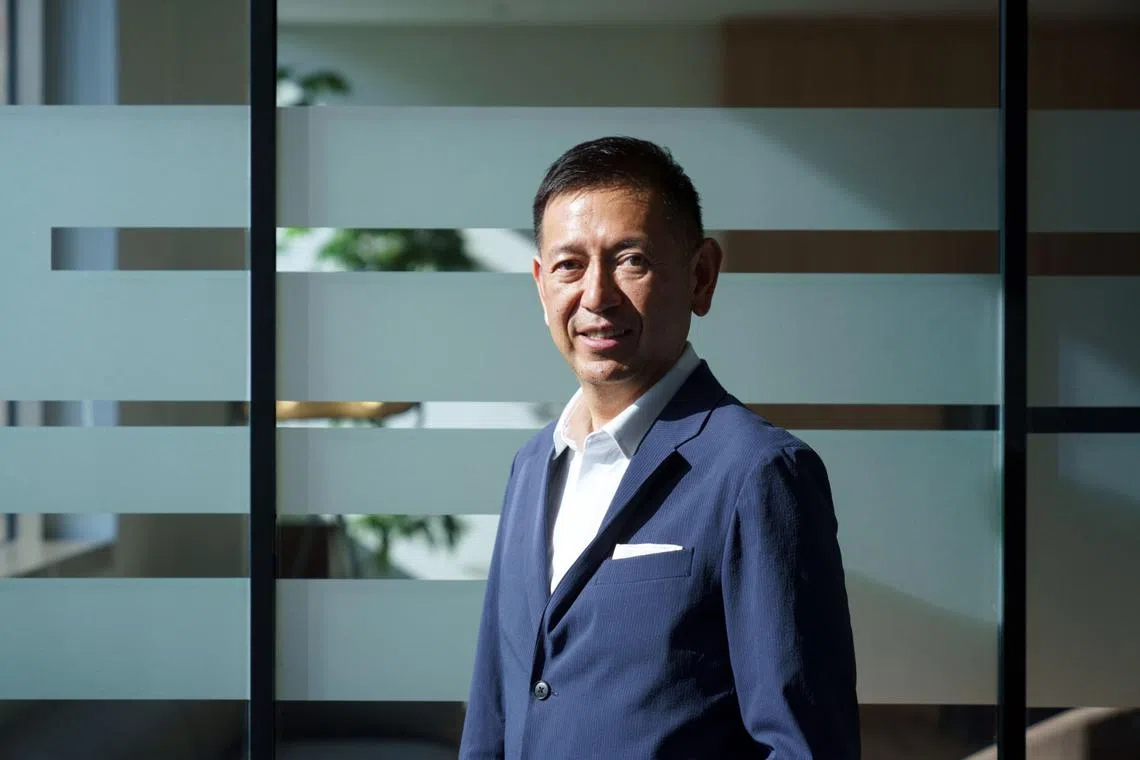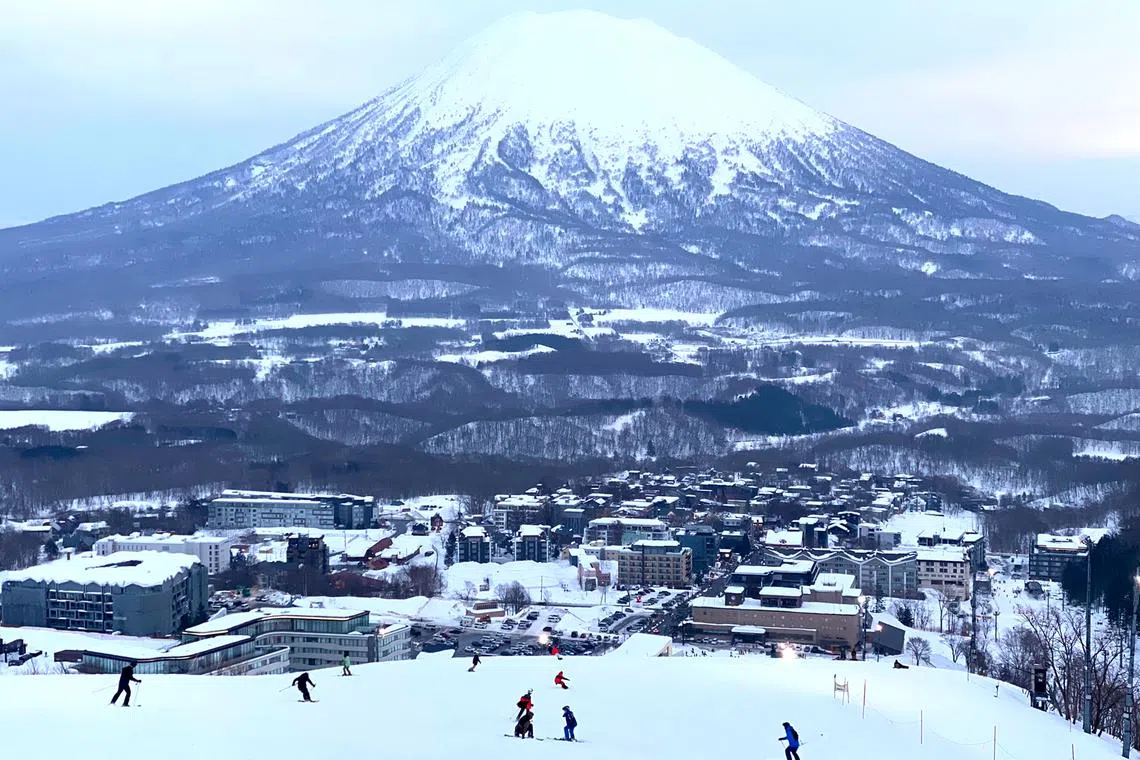Former GIC Japan head Ken Chan planning $1.9 billion luxury ski resort near Tokyo
Sign up now: Get ST's newsletters delivered to your inbox

Mr Chan has just taken the first step on what he hopes to pin his legacy.
PHOTO: BLOOMBERG
Follow topic:
SINGAPORE – About 240km north-west of Tokyo lies a sleepy pocket of the nation’s ski country called Myoko Kogen.
Bustling in the 1980s bubble era with young skiers and neon-lit streets, the area has seen better days.
Enter Mr Ken Chan, the former Japan head of Singapore sovereign wealth fund GIC, who plans to harness 210 billion yen (S$1.9 billion) in investments to transform it into a luxury skiing paradise to rival Aspen, Whistler and St Moritz.
For two years, his investment firm has bought surrounding land at cut-rate prices thanks to the plunging yen.
And by 2026, he aims to have international hotels in place, alongside housing for thousands of workers.
The plan to put Myoko on the world tourism map is a cornerstone project for Mr Chan and his company Patience Capital Group, which manages US$500 million (S$684 million) and also invests in residential real estate assets in Japan.
It comes as more global investors look to get in on the country’s red-hot tourism rebound, and its ski slopes become more celebrated.
“I always say that we can’t put this project into a bag and take it back to Singapore. This is permanent,” Mr Chan, 56, said in an interview at his Tokyo office. “We are ready to do this in a very proper way and launch it big time.”
Mr Chan has just taken the first step on what he hopes to pin his legacy. His firm has raised 35 billion yen from institutions in Japan and Singapore for its Japan Tourism Fund 1, with much of that tagged for the ski initiative.
Investors include Mizuho Bank, Temasek’s Pavilion Capital and a Singapore university endowment, Patience said on Wednesday.
By December, Mr Chan expects to announce at least two to three winners of a hotel tender process that has attracted more than 10 bids from global giants.
He expects it will take about a decade and around 210 billion yen, over at least three phases, for his vision to reach fruition – with the mountains in the Myoko area filled with flagship boutiques and world-class dining.
Mr Chan envisages travellers taking a four-hour chauffeured drive or a roughly two-hour bullet train ride from Tokyo before entering the luxury bubble, where they will ski in and out of resorts in winter and spend the warmer months hiking or sending their children to summer camps.
There are risks for a project in its infancy.
Funding is one – just the first phase will need almost half a billion dollars in investments over the next three to four years alone, according to Mr Chan’s estimates.
The number of skiers and snowboarders in Japan has also been declining – down about 75 per cent in 2020 from its peak in the late 1990s, according to the Japan Productivity Centre.
That means Mr Chan will need to rely on foreign tourists. It remains unclear how locals will take the influx of rich travellers and the workforce needed to service them.
He is confident that he can work with residents and people will come to Myoko, already known among buffs for its powdery snow and one of the nation’s longest ski runs.
Mr Chan’s ties to Japan run deep. He was born there, the son of a Singaporean doctor who lived in the country until Mr Chan was six.
After graduating from the University of Southern California, Mr Chan returned to Japan and then Singapore to work in information technology and finance roles.
He joined GIC in 2000 when the wealth fund was repeatedly losing bids for Japanese real estate and wanted a Singaporean with the cultural skills and experience to work in Tokyo.
After almost 20 years, Mr Chan left GIC in 2019 to strike out on his own.
His firm also oversees the Japan Residential Opportunities Fund, with 40 billion yen in assets under management. It is now in the market to raise 25 billion yen for a second residential fund, targeting annualised returns of 15 per cent.

Niseko is Japan’s best-known ski hub.
PHOTO: ST FILE
While Niseko – Japan’s best-known ski hub – took about 19 years to reach its current state without a singular driver, Mr Chan is planning the development from scratch, and believes owning the land will streamline the process.
“The company I’ve set up is going to go beyond me,” he said. “This is going to benefit the next generation.” BLOOMBERG

